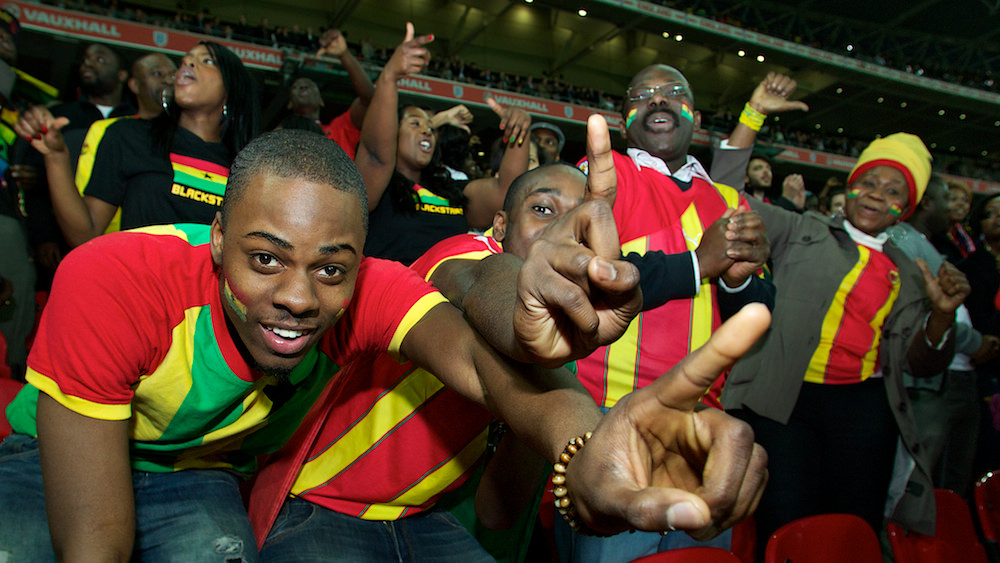“An effective approach to sports development”
February 8th, 2018 Development in sports can be created by a top-down or a bottom-up approach, writes Dennis Kwasi Boateng, 28, a Correspondent living in London, as he considers the best option for sports development in Africa.
Development in sports can be created by a top-down or a bottom-up approach, writes Dennis Kwasi Boateng, 28, a Correspondent living in London, as he considers the best option for sports development in Africa.
This particular topic has been frustrating, due to the generally passive nature of Africans and sports, and to the steadily increasing gap in comparison to developed nations. However, I find it a fascinating subject and a topic which has enormous potential to make an impact on the continent.
Through researching and gaining detailed insight into solution-based ideas, I feel that the bottom-up approach always has been, and is, the sustainable way to progressive development of sports in Africa.
Let me walk you through my rationale………….
The top-down theory is a system based on the hierarchy structure, which emphasises decision-making to be concluded at the top of the chain and proceeds from these decisions to be implemented accordingly down the chain of command. The top-down theory holds assumptions that decisions taken at the top of an organisation’s structure have a higher likelihood of achieving objectives. This eventually creates a trickle-down effect, making the required impact within the lower realms of an organisation or its vision possible.
A prime example of this can be seen in the relationship between the Ghana Football Association (GFA), the Black Stars (National Football Team) and Ghana premier league. The GFA, in my opinion, seems to believe that the key to national development in football stems from allocating the majority of its budget towards the Black Stars. The hope is that performances in the Africa Cup of Nations and the World Cup will derive significant benefits such as international exposure and prize money. These added resources, gained from progressing to the latter stages of competitions or winning, would essentially create a trickle-down effect. The resulting prize money would then be allocated towards investment in grass root football programmes, and ultimately help establish Ghana’s national football league.
However, I feel that this is a flawed system which needs to be revised if national sports in the country is going to progress and witness a visible change in the sporting culture. For a clear example of the narrow-mindedness in Ghanaian sports, I will refer to 2016, when even though the Black Stars managed to attract substantial sponsorship deals, they still were simultaneously receiving a significant chunk of the funding meant for the entire Ministry of Youth and Sports (MOYS) and other sports disciplines in the country. Now, if this is not an outrage for all the other sporting disciplines in the nation, then I don’t know what is!
The bottom-up theory is a system that I believe is the key to progressive development for sports in Ghana. The GFA and MOYS would in my view, gain a better return on investment and better serve the nation by looking closely at examples such as the African organisation “Wembley Sports Complex”, which is a privately owned sports recreational centre in Accra. The Wembley Sports Complex facilities is a multi-sports complex which includes an astro-turf pitch for football, table tennis courts, a volleyball court and basketball court.
With already four locations in Ghana, plans have been set to build 40 more facilities by the end of 2018 across the country. As a result of these centres, the immediate area can embrace the possibilities of local football tournaments. At the same time it also gives local schools an option to utilise facilities for extracurricular activities, sports days and national sporting tournament. It is a business model I think these two institutions, (the GFA and MOYS) could use to support grassroots football and access to sports facilities for local schools and the immediate area.
Personally, I think that fundamental principles have to be rebuilt such as designated physical education lessons with trained teachers, low-cost access to sports equipment, low-cost facilities, and regular local, regional and national games for all sports disciplines.
Over the next decade, the performance of elite Ghanaian athletes, the health of the citizens of the nation and the general importance of the sports industry within the African economy will be based on implementing policies, systems and infrastructures discovered from the bottom-up theory. The effort will involve headteachers, local and international NGOs utilising sports, and aspiring athletes. I believe the representation of all these parties will be critical for progression in sports development in Ghana.
Photo credit: philosophyfootball raise the flag ghana 29 march eventful-org-uk low 2 via photopin (license)
…………………………………………………………………………………………………………………
About me: I have an eye for capitalism but am a social entrepreneur at heart. Currently I am a facilities supervisor for a leisure operator in the UK. Interested in the sustainable growth of the Africa continent, I believe that uplifting the sports industry will be important to the economic growth of the continent. I love to write about the opportunities of the sports sector and the impact it can have to create a conducive environment to support employment on the continent.
…………………………………………………………………………………………………………………
Opinions expressed in this article are those of the author and do not necessarily represent the views of the Commonwealth Youth Programme. Articles are published in a spirit of dialogue, respect and understanding. If you disagree, why not submit a response?
To learn more about becoming a Commonwealth Correspondent please visit: http://www.yourcommonwealth.org/submit-articles/
…………………………………………………………………………………………………………………




